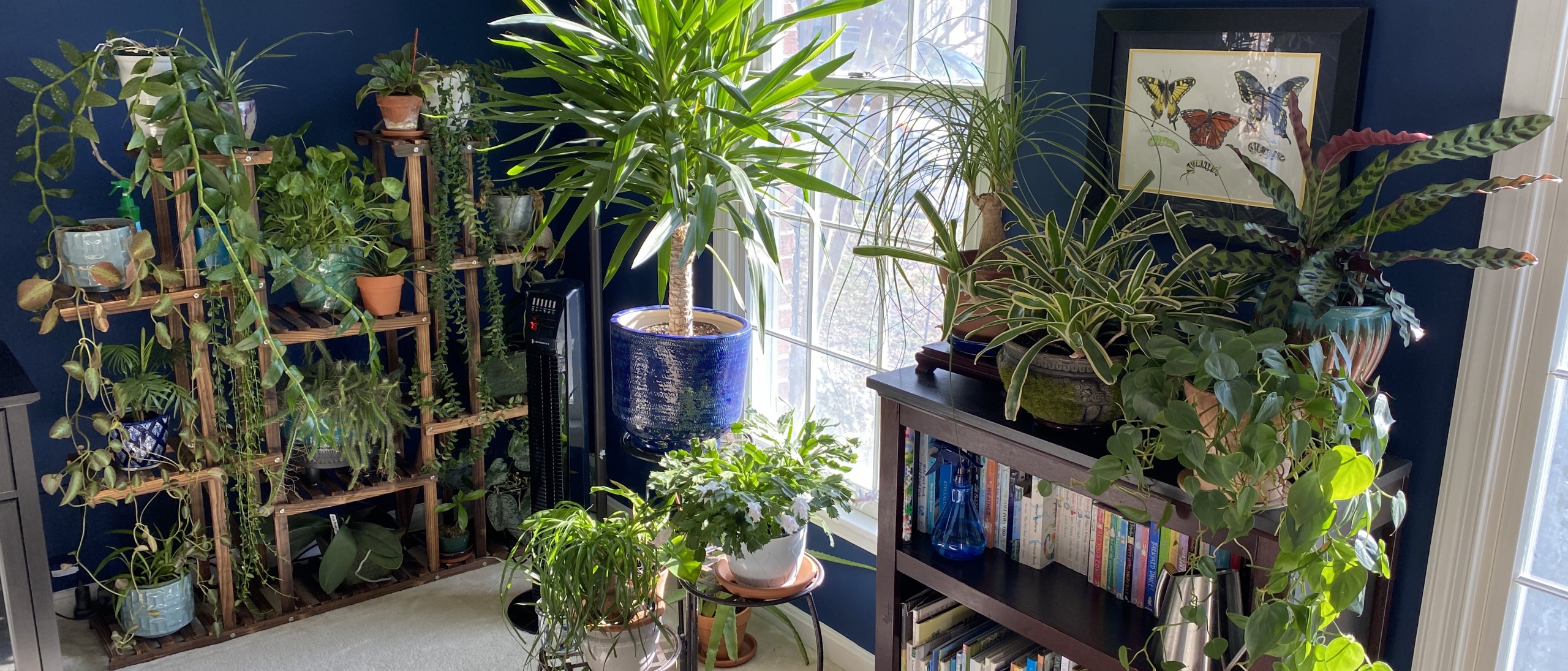Houseplants Are Like Potato Chips
In honor of National Houseplant Appreciation Day which falls annually on January 10th, Smithsonian Gardens highlights the importance of houseplants, bringing a greater awareness and appreciation of the ways in which houseplants can improve our lives. Join us in bringing the outdoors in!
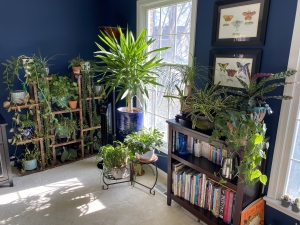
Plants have been cultivated indoors for 3,000 years. Early indoor gardening is thought to have begun in Greece by women who grew herbs indoors for the Festival of Adonis. Orangeries, or rooms of citrus plants grown indoors, were common during and after the Renaissance. The year 1830 marked the invention of the Wardian case, a miniature greenhouse that enabled gardeners to grow ferns and other tropical plants in the same humid conditions as the plants’ native habitats. Botanical collecting expeditions and world trade increased the number of species available for indoor cultivation. Many of the plants brought to Europe came from the tropics and were not cold-hardy outdoors, thus requiring indoor cultivation. Several plants from these early expeditions are still in cultivation today and make great houseplants.
During the Victorian era (1837-1901), plants were a way to show one’s social status. Only the wealthy, higher classes of the population had the means to possess plants. Houseplants were grown to impress visitors in one’s home and were displayed in fancy parlors and orangeries. Today, houseplants are available to anyone from all walks of life. While they continue to impress, they are raised more often for the many benefits they bring to our lives.
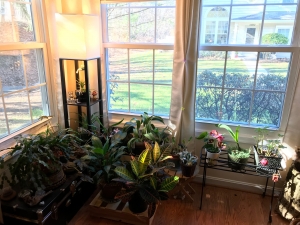
Today, one of the benefits houseplants provides is that of improving our health. Research has shown that having plants in our everyday environments filters toxins from the air, including a reduction in carbon dioxide levels. Cleaner air means we can breathe more easily. Plants that transpire (or give off water through their leaves) more than other plants are better at cleaning the air than others.
Benefits from plants to our mental health are just as important as benefits to our physical health. We give plants as gifts to others, whether as bouquets of flowers or potted plants, to make people feel better. The same can be said about keeping plants in our homes. They improve our moods, reduce fatigue and anxiety, as well as lower stress.
Research also shows that having plants in the workplace improves creativity and productivity. Now that many of us are working from home, these benefits may become more apparent as well as others, such as improved focus and attention.
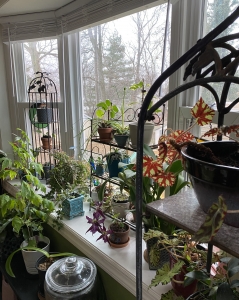
Finally, houseplants have healing properties. These days, plants offer a kind of companionship to those who are spending more time at home than usual. Plants create a welcoming environment and give us something positive to devote our time and attention to, providing us the opportunity to nurture and care for another living thing. Plant care shares with us life lessons such as learning to be more patient and responsible.
Horticulture therapy professionals know first-hand the benefits of houseplants and use them to help heal others in places like nursing homes, rehabilitation centers, and schools. They create programs that connect people and plants in order to foster healing, boost positive emotions, and bring people together. Plants have been shown to help stimulate memory in patients as well as help with pain tolerance, both of which can benefit all of us as we get older.
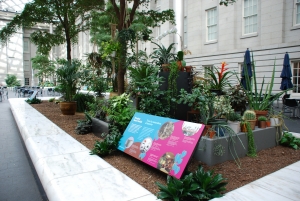
The Smithsonian Gardens exhibit in the Kogod Courtyard, The Great Indoors, highlights the connection of people to plants and the benefits of bringing the natural elements of the outside world into our homes, workplaces, and indoor spaces. Although this exhibit is currently closed to the public, you can learn more about it by visiting our webpage.
We hope you have already had the opportunity to find out for yourself just how beneficial plants can be to your quality of life. If not, hopefully now you might consider opening your home (and heart) to a new plant roommate. You may find that houseplants are like potato chips—once you start with one, you just can’t stop!

